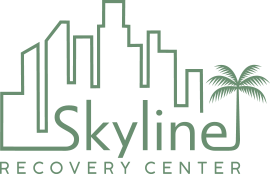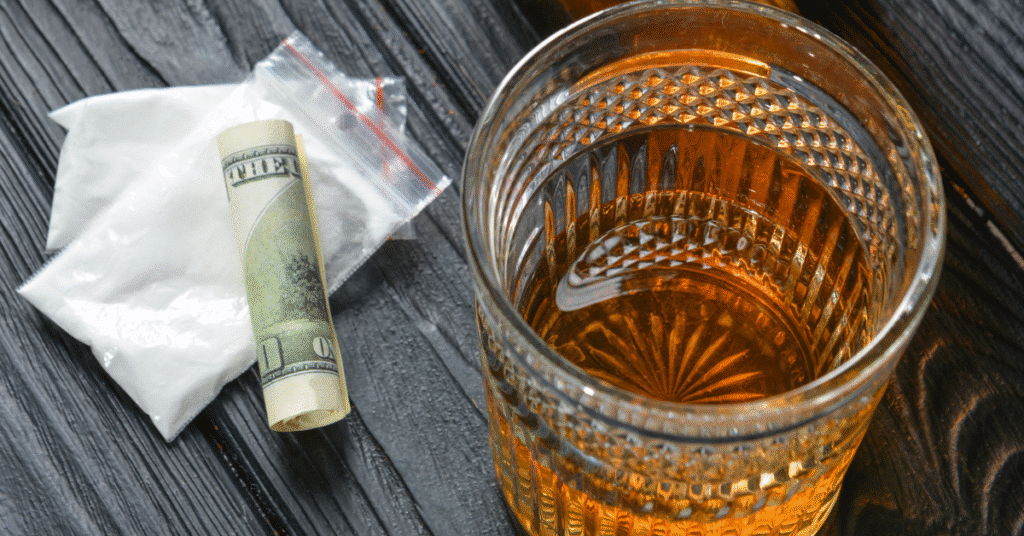Alcohol and cocaine are two different drugs – alcohol is a central nervous system (CNS) depressant, while cocaine is a stimulant; alcohol is legal and widely normalized, whereas cocaine is illegal, with a certain level of stigma attached to it. Despite these vast differences between the two, many choose to experience the effects of mixing cocaine and alcohol together – but what happens afterward? This combination can lead to unpredictable, dangerous effects – please read on to find out more!
How Alcohol and Cocaine Work – Alone and Together?
Alcohol is a depressant – it slows down your brain activity, relaxing you. It can also impair reasoning, judgment, reaction time, coordination, and speech. In high levels, it can lead to alcohol poisoning and other dangerous effects.
Cocaine is a stimulant – it boosts your mood and energy levels. It can also lead to restlessness, anxiety, paranoia, a heart attack, seizure, and stroke.
But what happens by mixing alcohol and cocaine?
These vastly different drugs with vastly different perceptions and experiences are often mixed for a variety of reasons:
For a more intense effect – when used together, alcohol and cocaine lead to an intense, longer-lasting intoxicating effect. By mixing alcohol and cocaine, the body creates something known as cocaethylene – a psychoactive substance that behaves similarly to cocaine, albeit with longer-lasting, dangerous effects.
To mask the intoxication – cocaine can mask the intoxicating effects of alcohol, so one may still feel focused and coordinated despite the high blood alcohol levels. On the flip side, one may misjudge the amount of alcohol they have taken, leading to greater risks of heavy drinking.
To reduce withdrawal – as cocaine wears off, one may feel restless and uncomfortable, so they use alcohol to reduce these effects.
Indeed, it may seem like the effects of mixing cocaine and alcohol are pleasant; however, this is just a misconception. Cocaine can speed you up, while alcohol can slow you down. But combining the two will not counterbalance these effects – drugs as dangerous as alcohol and cocaine behave in complex ways when a person mixes them, leading to highly unpredictable and dangerous effects.
Effects of Mixing Cocaine and Alcohol
Physical Health Risks
Mixing alcohol and cocaine together can lead to unpredictable effects and greater health risks, such as:
- Masking alcohol intoxication, so one may drink more than they intend to
- Creation of cocaethylene, which is a toxic chemical that stays in the body for longer than alcohol and cocaine, and is more toxic to the liver and other organs.
- High blood pressure
- Slowed breathing
- Heart arrhythmias.
Mental and Behavioral Health Risks
- Restlessness
- Impulsive behaviors
- Anxiety
- Paranoia
- Mood swings
- Polysubstance use disorder.
Lasting Consequences for Body and Mind
The effects of mixing cocaine and alcohol can be both immediate and long-lasting. Here are some of the lasting consequences for the body and mind:
- Liver damage, such as liver toxicity and fibrosis
- Organ damage
- Cognitive impairment, especially when polysubstance use begins at a young age
- Hyperthermia
- Lasting anxiety and panic attacks
- Heart attack
- Stroke.
Treatment Options for Alcohol and Cocaine Use
While experts advise not to mix alcohol and cocaine together, it is easier said than done when you factor in how appealing these substances are, separately and together. However, on the other side of this vicious cycle of addiction is recovery.
Your cocaine and alcohol use recovery will most likely begin with medical detox, where alcohol and cocaine levels are gradually tapered off from your body to minimize and manage withdrawal. While detox guarantees safety, it does not guarantee sobriety.
This is why you need psychotherapy involving motivational interviewing, cognitive behavioral therapy, contingency management, and 12-Step recovery models to change the problematic patterns leading to polysubstance use and equip you with coping skills and other strategies to avoid relapse.
While there are no medications available to treat cocaine addiction or withdrawal, combining medications that treat alcohol use with psychotherapy can lead to enhanced recovery outcomes.
To sustain your recovery, you will need aftercare involving sober living, ongoing therapy/supportive counseling, medication monitoring, relapse prevention, and 12-Step/non-12-Step recovery meetings such as Alcoholics Anonymous (AA), Narcotics Anonymous (NA), SMART Recovery, and more.
Choose Healing With Skyline Today!
If you or someone you know is navigating the challenges of the dangerous mix of cocaine and alcohol – Skyline Recovery Center is here for you. Our expert team specializes in polysubstance recovery and dual diagnosis to provide you with a full continuum of personalized care. Reach out today to learn about our outpatient recovery options and how we can take this journey toward a brighter tomorrow – which is just on the horizon!
Please do not hesitate to call us at (310) 269-0038 to schedule a free, confidential consultation today!


